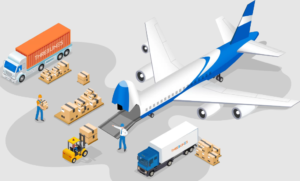Call Us:
+44 7800 648 660
+254 111 81 81 81
Mail Us:
info@tripleafreight.co.uk
Triple A
 Air logistics services have a global reach that is unmatched by other modes of transport. With extensive networks of airlines and airports, air freight can connect businesses to almost any destination in the world. This global reach is vital for companies looking to expand their market presence and reach customers in new regions.
Air logistics services have a global reach that is unmatched by other modes of transport. With extensive networks of airlines and airports, air freight can connect businesses to almost any destination in the world. This global reach is vital for companies looking to expand their market presence and reach customers in new regions.
Comments
Thank you for your sharing. I am worried that I lack creative ideas. It is your article that makes me full of hope. Thank you. But, I have a question, can you help me?
Can you be more specific about the content of your article? After reading it, I still have some doubts. Hope you can help me.
Your point of view caught my eye and was very interesting. Thanks. I have a question for you. https://www.binance.info/en-IN/register-person?ref=UM6SMJM3
I don’t think the title of your article matches the content lol. Just kidding, mainly because I had some doubts after reading the article.
**mind vault**
mind vault is a premium cognitive support formula created for adults 45+. It’s thoughtfully designed to help maintain clear thinking
**gl pro**
gl pro is a natural dietary supplement designed to promote balanced blood sugar levels and curb sugar cravings.
**breathe**
breathe is a plant-powered tincture crafted to promote lung performance and enhance your breathing quality.
Your article helped me a lot, is there any more related content? Thanks!
cassinoonline777 is my new fave spot. The games load quick, which is a big plus. Plus, they’ve got a decent variety. Might just stick around for a while. Get in on the action cassinoonline777.
Spotted 616bet1 online and figured I’d give it a shot. Interface is simple, which I like. Haven’t won big *yet*, but I’m optimistic. Give it a try, mate! More details here: 616bet1.
Looking for a new place to test your luck? 66wins seems promising! Maybe today is your lucky 66. Worth a peek if you’re shopping around. Give it a peek at 66wins!
Your point of view caught my eye and was very interesting. Thanks. I have a question for you. https://www.binance.com/zh-TC/register?ref=DCKLL1YD